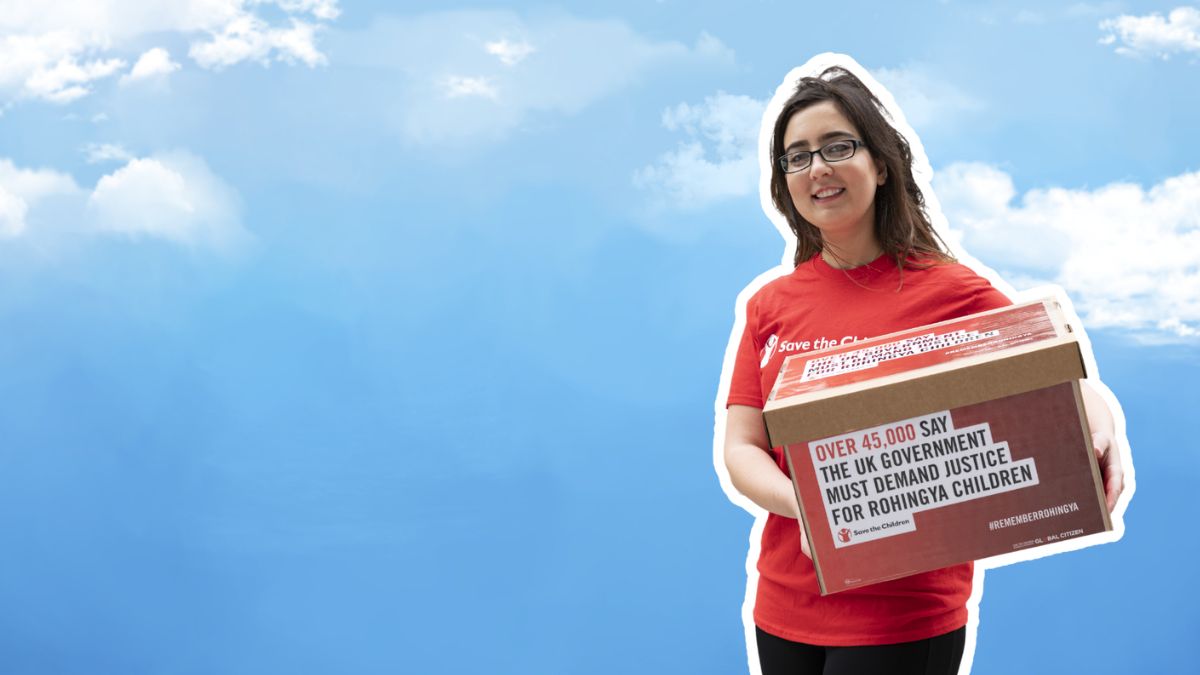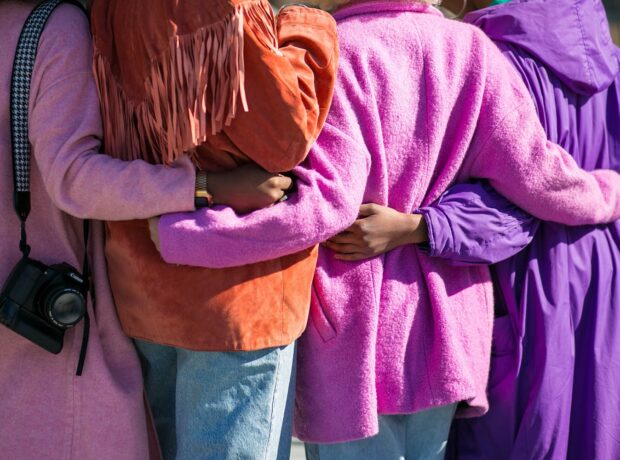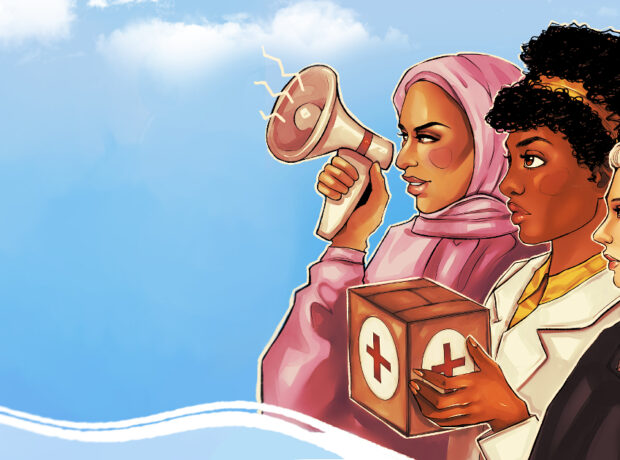What does a charity campaigner do? Social change campaigner Rasha Daya went from studying banking and finance to lobbying for improving policies affecting children in the UK and abroad. Here, she shares her route into the role and offers advice for aspiring campaigners.
“Life can be tough, especially when the system and stereotypes block the support you need or push you into deeper struggles. I find this injustice very unsettling. People deserve the chance to overcome their challenging situations and I wanted to help make that a reality.”
How does a banking and finance student build a career in humanitarian campaigning?
“My route into campaigning and humanitarianism is an unusual one.
“When I finished high school, I did my bachelor’s in banking and finance. It was at a time when the financial sector was booming in Syria and a career in the financial sector was the dream of many including me. After graduating, I came to the UK to do a master’s in financial management at the University of Dundee. I then went back to Syria and worked for three years in investment and banking. But my passion for economics led me back to Scotland, to the University of Glasgow, where I did a master’s degree in economic development. Through my studies, I did lots of research on humanitarian topics such as refugees, foreign aid and the international financial mechanisms.
“At that time, the refugee crisis in Europe started emerging as a headline. Many media outlets and politicians were portraying refugees as bad people and a burden: ‘Send them back’, ‘They’ll increase crime rates’. This narrative made me uncomfortable. Are refugees really that bad?!”
How did the negative narrative around refugees change your study and career path?
“I negotiated with the university and did my dissertation on studying the effect of hosting refugees on crime rates in developed countries. When I got the numbers and did the analysis, it seemed that for most of these countries, if they host more refugees the robbery rate declines. Think about it, you are hosting a group of people who went through a lot to reach safety and they are scared to do anything against the law so they don’t get deported.
“Just a few weeks after I finished my dissertation, Donald Trump Jnr went on Twitter and compared Syrian refugees to a bowl of skittles. He said, ‘if you had a bowl of skittles and I told you just three would kill you, would you take a handful?’ He was implying that the US shouldn’t host Syrian refugees at all. Reading this made me upset. I had just crunched the numbers so I knew this argument was unfair! I started paying more attention to the stories told by politicians and the media and how they impact voters and people who are directly affected.”
What was your first humanitarian job and how did you become a campaigner?
“In 2018, I joined Save the Children as an advocacy officer, working on education for children living in crises, whether that’s conflicts or natural disasters, and protecting children in conflicts. I learned a lot about international human rights accountability mechanisms and how to lobby so that foreign aid is going to children who need it the most. It was fascinating. I stayed at Save the Children for over four years and progressed to being a senior campaigner. I’ve worked on international development, child poverty, climate change and economic inequality. Now I’m working with The Children’s Society on a campaign raising awareness to protect children in the UK from criminal exploitation.”
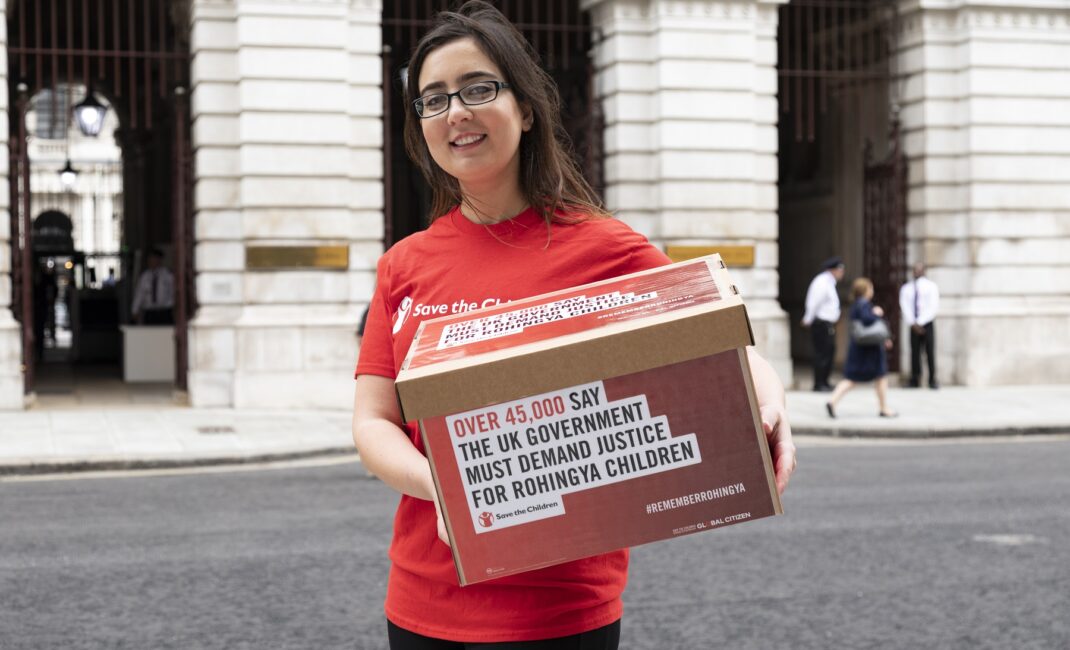
Save the Children campaign champions and staff handing in the Demand Justice for Rohingya Children petition to the Foreign and Common Wealth Office in London, UK. Rasha Daya.
What does a charity campaigner for a humanitarian NGO do?
“What you do in your campaigning depends on the issue, who makes the decisions, what power structure is in place, and where you can create an influence. You may work on many things, from talking to people in communities and asking for their support, to writing a report to provide evidence for what you are calling for. One day you’ll be working with tens of organisations all joining efforts to push for a change; on another day you’ll be campaigning alongside people with lived experience. For example, during Covid-19 I was supporting a group of single parents who are on universal credit. My role was mainly to create opportunities for them to share their stories with the media and politicians. Every project is different, so there are many opportunities to test and learn.
“When you’re working with big organisations like Save the Children, you have the opportunity to campaign on global issues. You’ll be lobbying governments and international institutions. A great example of that is, in 2019 I went to the UN General Assembly and I gave a speech about the importance of education for Syrian children to raise more funding for education in emergencies. We had lots of conversations providing evidence from our programmes on why funders should prioritise education. The UK alone pledged more than £500 million for girls’ education and education in emergencies.
“When you’re working with local organisations, you have the chance to build more personal relationship with the communities and see the impact of your campaigning on ground. There are lots of things to learn about, such as how local governments operate and their approach to support communities in local areas.”
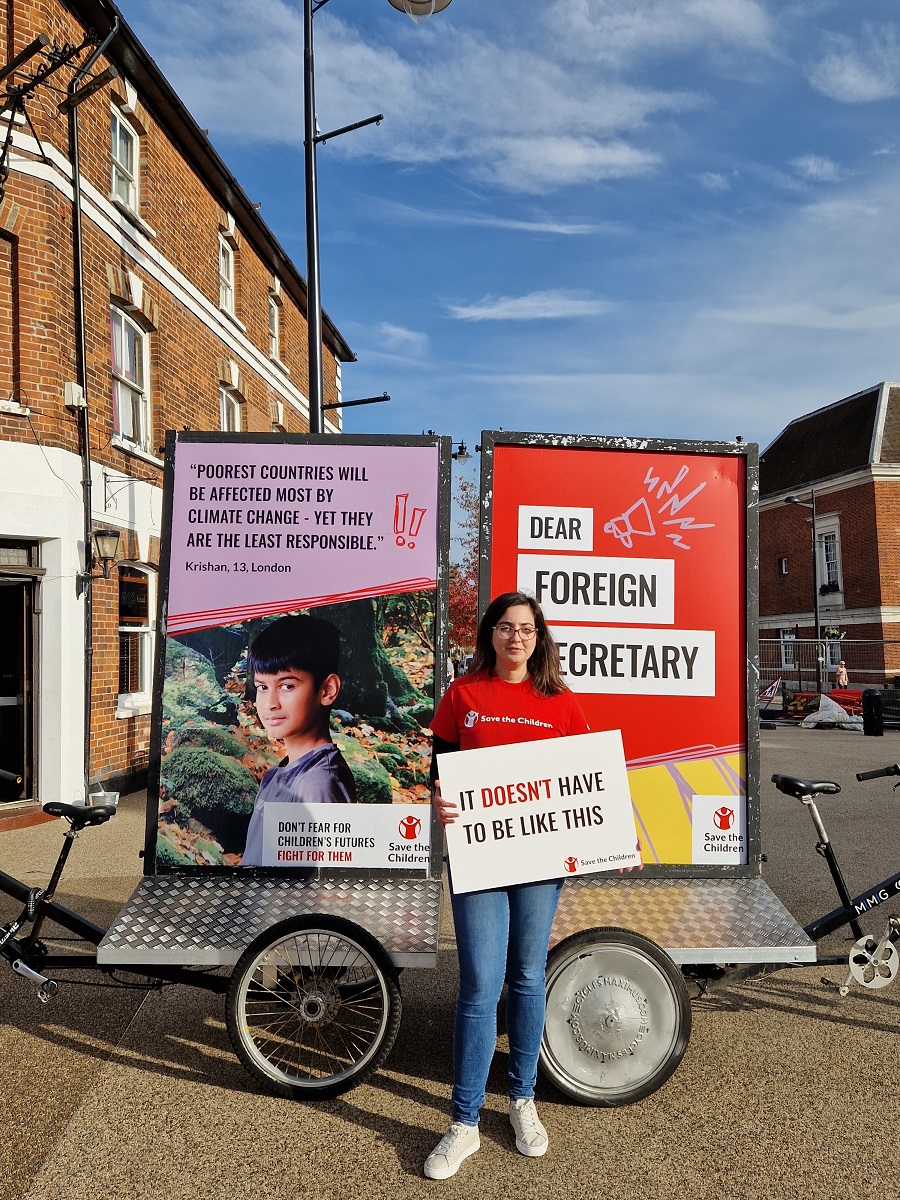
It sounds like campaigners work closely with politicians and other powerful figures. What is that like?
“Politicians have different interests and navigate several power structures. They are parents, friends and leaders who care about their community and want to support the people who live there.
“It’s about finding out why that institution or power structure is not changing a policy, and then what you can provide the politicians in order to make it easier for them to make a change. Perhaps we can provide evidence, public support, or media buzz. We have teams who build relationships with politicians and institutions so we can join efforts to support communities.”
What are the biggest challenges of working in campaigning?
“Being a campaigner is rewarding but it’s also emotionally driven. You need to be resilient, especially if you have personal connection to the cause you are working on. That took me a long time to learn how to navigate.
“You need to be persistent and patient. When things don’t work out, learn from them, update your tactics and then try again. You might campaign on the same issue for years before you can see results. Sometimes you get stuck in bureaucracy and hierarchy – don’t give up, change is not easy, it takes time, but it is definitely worth it.”
What skills or abilities do you need to be a good campaigner?
“I think to be a campaigner, you need to believe in the change you are trying to create and explore how your personal passion is aligned with it.
“Communication and building relationships are key. You’ll spend a lot of time talking to community leaders, children and young people, politicians, the media, and individuals who support your cause. Sometimes you need to gather data and stories, so you must build trust and accountability. We do lots of training, helping people to run their own campaigns or prepare for media interviews. It’s human-focused, from my experience.”
What careers advice would you give to aspiring campaigners?
“It’s good to start by understanding your options. The charity sector is an obvious option. At big charities, you can campaign on a global and local scale. Nevertheless, at local organisations your projects will be closer to the communities, focusing on local and more relatable issues. You can also look at private consultancies and foundations who may do a niche kind of campaigning. Explore what kind of experience you can get there.
“Keep an eye on the campaigning approach. Organisations campaign on a spectrum, where you have everything from bold, aggressive campaigning, to diplomatic, behind-the-scenes campaigning. It’s important to join an organisation where you feel comfortable with the approach.
“If you are interviewing for a campaigner job, always ask about the culture of the workplace. I often ask the interviewer, ‘Tell me three things you enjoy about working here and three things you wish were different’. Most organisations provide lots of support in terms of flexible working hours and mental health support.
“Finally, think about the skills you’re bringing to the sector and try to find a role that builds on that, but also opens the door for you to learn other things. If you don’t know how to evaluate your options, drop a line to someone relevant on LinkedIn and say, ‘I’d like to have a chat!’ Some people may be willing to help you explore your choices.”
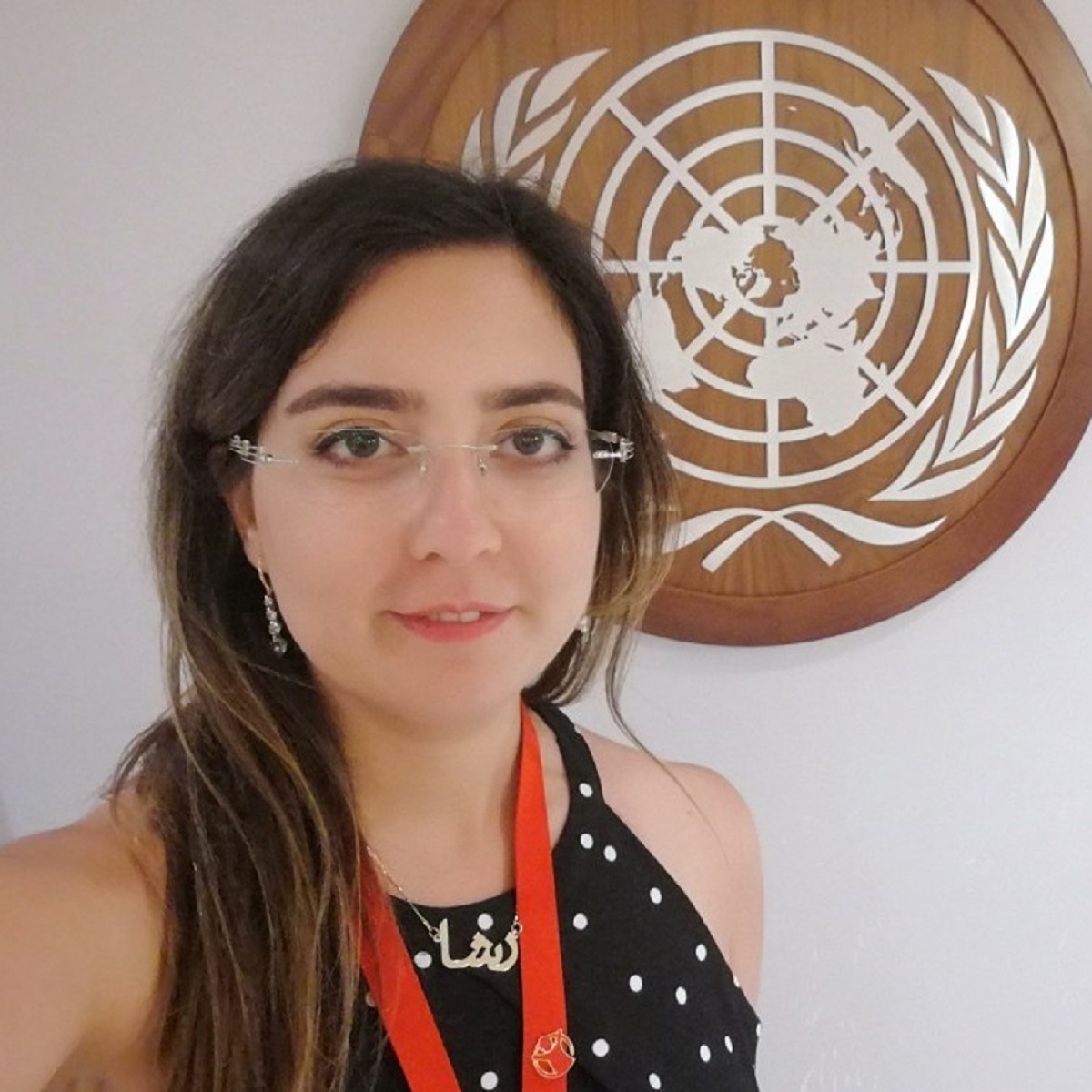
A day in the life of a charity campaigner…
“We work in project cycles, and each starts by studying the problem, understanding the policy and public opinion around it, and deciding what we can do to help. Each project has its unique circumstances and thus we develop a tailored approach to influence it.
“Once the road to change is clear, we start bringing people on board and exploring how we can join efforts to maximise impact. Colleagues from different specialities join us to create what is needed to drive the change forward. It is exhilarating to work in such groups of brilliant and progressive experts.
“Once the campaign is live, we start reflecting on the progress and gathering feedback from our selected stakeholders. Which will help us refine our approach as needed.”
Follow Rasha’s work via LinkedIn.
This is one in a series of human rights careers interviews, advising on the first steps to securing a job that makes a difference. Read more here:
- How to be a humanitarian aid worker
- How to be a human rights journalist
- Building a human rights career: What are my options?
If you work in a human rights-related career and want to share your story, get in touch with us at hello@lacuna.org.uk
